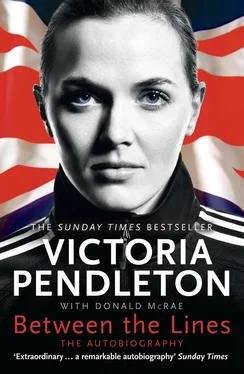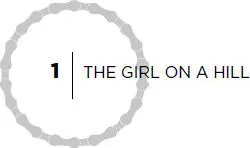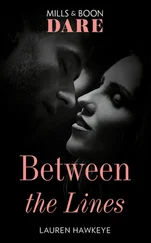Now, before I slide the mask across my face, the mask that tells Meares I’m going to blitz her, I allow myself to think once more of Scott. On the rollers I remember his last love letter to me. I cherish the fact that it was handwritten on a sheet of blue squared paper. Scott had also cut out some photographs of me winning World Cups and World Championships – just to remind me that I’m pretty good at riding fast. He wanted me to remember that I’m the world sprint champion and I’ve beaten Anna Meares often enough. I can beat her again.
Scott’s words resonate in my head. I linger over his suggestion that I put myself through this trauma for three reasons. I endure the pain and strife because I’m doing this for the people who have loved and supported me so long. I’m doing this for my family, my friends, my coaches and, of course, for Scott. I also go through the ringer, from the rollers to the track, just for myself. I’m twenty-seven years old. I’ve poured my whole adult life into preparing for this moment. So I’m out to win gold for the people who love me and, yes, I want it for me too.
The third and more shadowy group are now in my mind. I will soon blank every single one of them and home in on Meares. But Scott told me, in his beautiful letter, that I should also go out there and push myself to the edge of my ability so that I can show all those people who didn’t believe in me during the long and lonely years. They doubted me. They dismissed me. They hurt me. It’s time I show them how wrong they were about me. It’s time I make them change their minds forever about me.
Suddenly, I see Frédéric Magné, the coach who made me cry so hard in Athens. Fred, whom I liked and respected so much when I worked with him for eighteen months at his sprint academy in Aigle, walks around the pits. He’s training the Chinese girls now and, specifically, another great rival of mine, Guo Shuang, who has just won the bronze medal race. Fred keeps drifting in and out of my eye-line but, now, I hold him in my gaze. He looks at me, getting ready to go out and seize Olympic gold.
I look right through him as if he’s not even there.
I can feel the resentment surging inside me. Staring through Fred, it’s as if I’m looking beyond him to that moment when he tore into me in Athens. His words cut me far deeper than my own knife had done. He seemed to have no awareness of the pain he caused me.
On the rollers my legs keep turning, moving faster and faster. My face is utterly impassive. I am not the same frightened and confused girl I was in Switzerland. I am not the same girl who took a Swiss army knife and used it on herself because the cutting was less hurtful than the darker pain inside. Who would have thought it? Who would believe that distressed girl, who harmed herself, would make it all the way to an Olympic final?
The Smashing Pumpkins, singing of pink ribbon scars and cleansed regret, remind me of that past confusion.
Away from Fred I see another man who ripped into me. Martin Barras, a French-Canadian who is now Australia’s sprint coach, ridiculed me when he held a similar position within British cycling. He took just one look at me when I joined the sprint programme in Manchester in 2001 and decided I was far too slender and girly and weak to ever make it in the world of professional cycling. ‘Miss Victoria,’ he said, ‘I’m going to find you very annoying.’
Well, Martin, here I am, seven years later. I’m one up on your girl, Anna Meares. She has the squat and powerful physique that you believe is a pre-requisite for success on the sprint track. Anna looks like she could flatten me with just one swipe of a killer thigh. She’s got the force, too, in her backside to make someone like Martin think she should smash a frail and vulnerable little girly like me every time.
I feel like I am about to start growling on the rollers as my gaze switches from Fred to Martin, from one doubter to another. My uncomplaining legs pump just a little harder as the darkness descends. I’m going to show you, Fred, I swear to myself. I’m going to show you, Martin, I swear again.
I’m not just going to beat Martin’s big hope, Anna Meares. I am going to crush her. I want to annihilate her not just by winning the Olympic final but by demolishing her by an entire straight. I want to obliterate her hopes with the fastest time a woman has ever ridden in a sprint match.
I’ve never felt like this before. It’s an incredible emotion. I turn tingly with excitement. Adrenalin courses through me. There is so much tension and expectation in these last minutes. It seems like I’ve been touched by fate.
I think to myself: ‘God, this is going to happen. I am going to become the new Olympic champion.’
On the rollers, of course, I have no idea of the terrible pain and disappointment that will soon follow. I just know that victory, in this race, is mine. I start to lose myself to the sprint. I turn as powerfully blank as my pumping legs.
I feel ready. I feel like, at last, I’m going somewhere fast …
Dad rode away from me as we climbed the hill on a cold and drizzly Sunday morning in Bedfordshire. ‘He doesn’t love me,’ I said to myself as I tried to keep up with the distant figure of my father. ‘He doesn’t love me. He doesn’t love me …’
I repeated the words over and over again as, never lifting my gaze from the unbreakable man on the bike climbing the steep hill, I turned my legs as fast as I could. I had to hang onto Dad. I was sure that if I lost sight of him I would lose hold of his love.
The drizzle hardened into rain. Dad still didn’t look back. He sped away from me, up towards the clouds rolling down from the top of the hill. Dad looked more ghostly then.
I was fifteen. I had grown used to the ritual of chasing my father as he sped ahead of me. Dad dealt in clear and simple truths. He never told you that you were better than you were – even to boost you at your most vulnerable. Dad just expected you to do your best every single day. He was tough but, when I pleased him, I felt radiant with happiness. I knew how much it meant when Dad said he was proud of me.
The rain trickled down my face. It might have looked like I was crying, but I wasn’t. I was just concentrating and pedalling, pedalling and concentrating. But I was so tired and freezing I could no longer feel my hands on the handlebars or my feet on the pedals. I held on, numb to the finger-tips, pushing down with my churning legs and deadened feet. The gap between us might have widened but I would not let myself lose Dad. I clung onto the blurry image of him up ahead. An invisible twine must have bound his bike to mine.
Dad was strong; I was skinny. He was a really fit man, who had been cycling for decades, while I was a puny little girl with stick-like legs and a serious face. Max Pendleton was a star amateur rider. I was a worried waif. But Dad must have sensed I had a huge heart because he never made it easy for me. He pushed me every single mile, especially on those gruelling hills where he was such a deadly climber.
Days and climbs such as these, Dad said, were ‘character-building.’ That old-fashioned phrase covered everything that was mean and testing, because what didn’t kill you made you stronger. But I didn’t care about building my character. I just wanted Dad to slow down and show me that he loved me.
The rain kept on; but, somehow, so did I. The cold bit deeper into my bones but, still, I wouldn’t surrender. I wouldn’t let Dad escape. My gaze held him and I rode even harder.
Читать дальше













